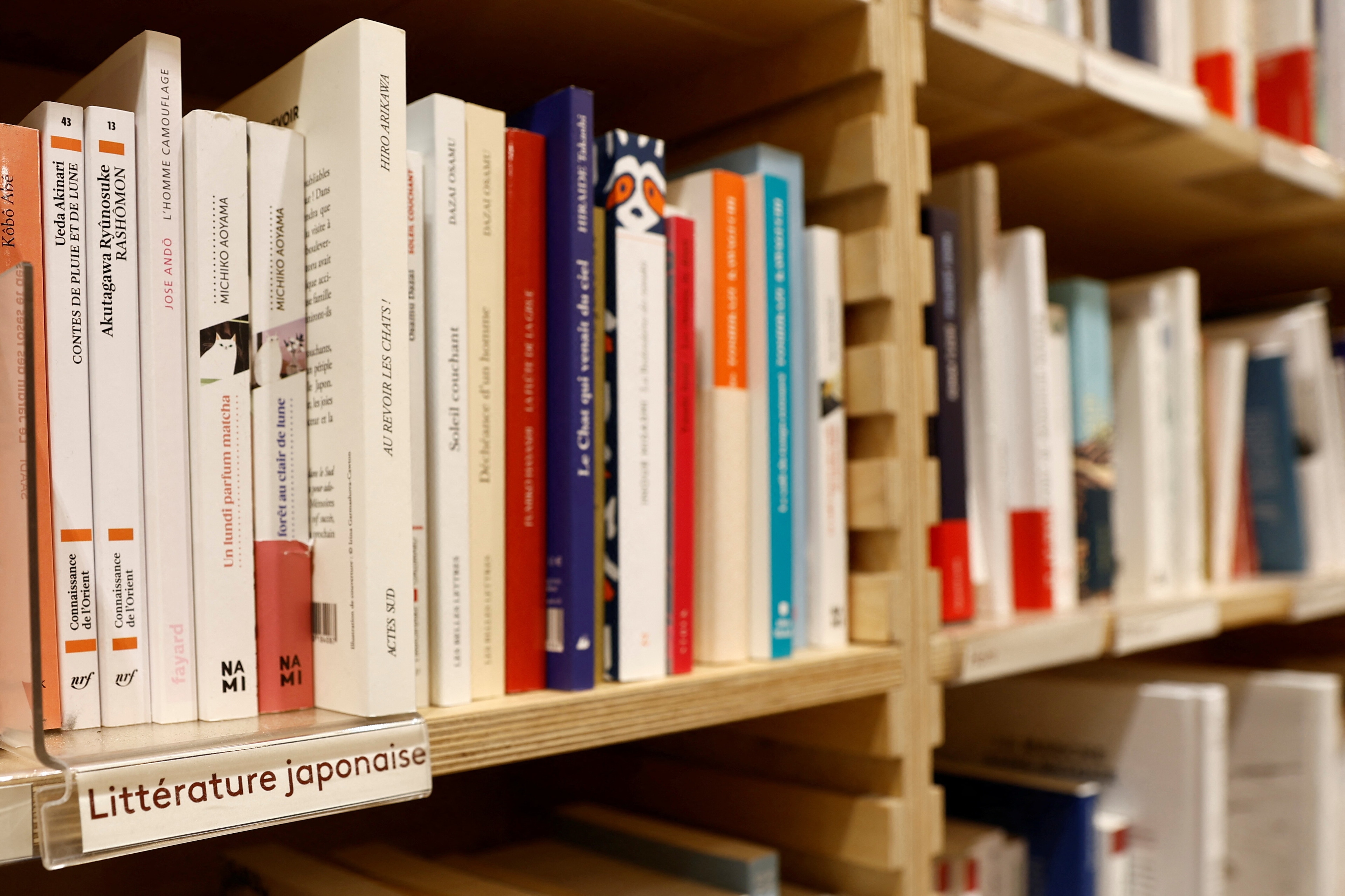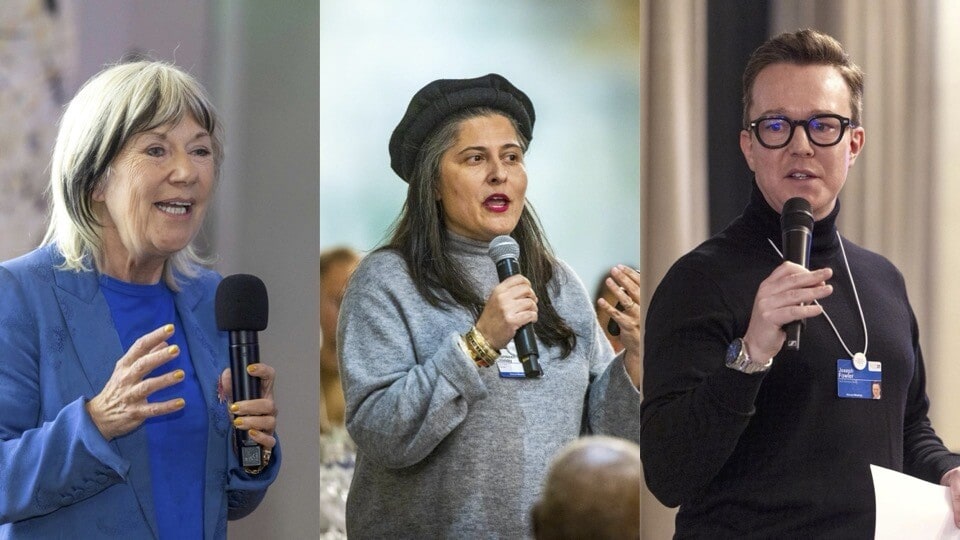The Education of An Idealist - an extract

U.S. Ambassador the the U.N. Samantha Power (L) and U.S. Secretary of State John Kerry (C) listen as U.S. President Barack Obama meets with India's Prime Minister Narendra Modi (unseen) at the United Nations General Assembly in New York September 28, 2015 Image: REUTERS/Kevin Lamarque
Samantha Power
Anna Lindh Professor of the Practice of Global Leadership and Public Policy, Harvard Kennedy School of GovernmentThis is an extract from the World Economic Forum's Book Club pick for February 2020: Samantha Power's The Education of an Idealist. Join our Book Club to discuss.
From 2013 to 2017, Samantha Power served as US Ambassador to the United Nations and as a member of President Barack Obama’s cabinet. She is currently a Professor of Practice at Harvard Kennedy School and Harvard Law School. This essay is adapted from her new book, “The Education of an Idealist: A Memoir” published September 10, 2019 by HarperCollins.
I left Washington, DC with little fanfare in the summer of 2006, after a year-long stint serving as a foreign policy adviser for Barack Obama in his Senate office. Although I had never considered myself a particularly partisan person, I came away immensely frustrated with the way Republicans often forced debates over US policy into a false dichotomy between an overreliance on military force on the one hand, and what they called “appeasement” on the other. I was also struck by how unprepared our national security institutions were for responding to unconventional threats like climate change. To deal with cross-border challenges, we needed to build coalitions, a prospect that required having credibility with foreign publics—and the Iraq War had cost us dearly in that respect.
Seeing all of this up close was deflating. But I did not consider the year a loss. My personal ups and downs in Washington had finally forced me to start addressing the unconscious forces inside me—forces that may well have been preventing me from finding a lasting romantic relationship. And despite the difficulties I experienced while working for him, I did feel that I had gotten to know Senator Obama.
What is the World Economic Forum's Book Club?
During the time I lived in Washington, Obama had spent nights and weekends writing his second book, which he was calling The Audacity of Hope. He would email me, usually late, after watching ESPN’s Sports Center, which I had generally watched as well. I would immediately mark up his drafts with edits and suggestions before returning them to him. I had come to realize that these exchanges were more valuable than anything I was doing for him in the Senate.
When I called Obama to tell him that I was heading back to Massachusetts, he cut me off. “Yeah, I never expected you to be useful to me here.” Having spent a year of my life trudging to and from his office in the Hart Senate building, I was taken aback.
“I don’t mean to hurt your feelings,” he said. “Let me rephrase that: I don’t have the power to use you properly. I was actually wondering what took you so long to bolt.”
I stared at the phone incredulously. Had he known all along how pointless the year in his office had often felt?
Although I didn’t share this with him at the time, my experiences with the Senate had left me with one conviction: Obama needed to get out of there. Even though Democrats had taken both the House and Senate in the 2006 midterm elections, I did not think Congress was where he belonged.
Like millions of other people, I believed that he should run for President.
During the months after I moved back to my apartment in Winthrop, MA and resumed teaching courses on US foreign policy and human rights at Harvard, I spoke with Obama often.
“How’s your Sergio book going?” he asked me in one call. I offered him more detail than he needed, as always, and then, assuming he wanted help on something, asked, “So what’s up? What can I do for you?”
His response surprised me. “What do you mean? I’m just calling to see how your book is coming and how you’re doing. I know how hard it is.”
I asked him about his recent trip to Kenya, his first since becoming an internationally known figure. He told me about the intensity of the crowds who lined the streets wherever he went.
“Goodness,” I said. “How did that feel?”
“Pardon?” he replied.
“How did it feel?” I repeated.
“What do you mean?” he asked.
“Barack!” I exclaimed. “Feelings! Remember those?”
“I don’t know,” he said. “I guess I felt the way I feel about all of this. People are hungering for something, and they see that something in me. I can’t take it too seriously.”

In October of 2006, The Audacity of Hope was published to a historic reception. Supporters wearing “Obama for President” paraphernalia mobbed his events, and tickets to free book readings were sold by scalpers online. With crowds overrunning the bookstores, Obama’s publicity team laid down rules: no photos, no personal conversations, and no more than three books to sign per person.
Obama told me that he had begun to think seriously about a presidential run, but he was worried about the time away from his daughters and Michelle. He knew that he would be sacrificing his privacy and that the campaign trail would be grueling. “I just don’t know if I want the aggravation,” he told me.
I urged him to go for it. “There’s nobody else who can break through. And even if it won’t be fun for you, and you don’t need it, the issues you care about need you.”
“Yeah, yeah,” he said, “I get the argument for doing it. I just need to know that we can manage this as a family. And I need to know that I can win.”
I was acutely conscious of how little I knew about political campaigns or his prospects against the financial juggernaut that seemed ready to line up behind Hillary Clinton, the presumptive Democratic front-runner for 2008. I also couldn’t conceive of what it would be like to weigh pursuit of the highest office in the land against missing one’s spouse and young children. I didn’t bring up the topic again. Instead, I scrutinized his public statements just like the rest of the country. All I knew was that if he did decide to run, I wanted to be there with him.
From THE EDUCATION OF AN IDEALIST by Samantha Power Copyright © 2019 by Samantha Power. Reprinted by permission of Dey Street Books, an imprint of HarperCollins Publishers.
Don't miss any update on this topic
Create a free account and access your personalized content collection with our latest publications and analyses.
License and Republishing
World Economic Forum articles may be republished in accordance with the Creative Commons Attribution-NonCommercial-NoDerivatives 4.0 International Public License, and in accordance with our Terms of Use.
The views expressed in this article are those of the author alone and not the World Economic Forum.
Stay up to date:
Book Club
Related topics:
Forum Stories newsletter
Bringing you weekly curated insights and analysis on the global issues that matter.
More on Arts and CultureSee all
Elena Raevskikh and Giovanna Di Mauro
October 22, 2025





